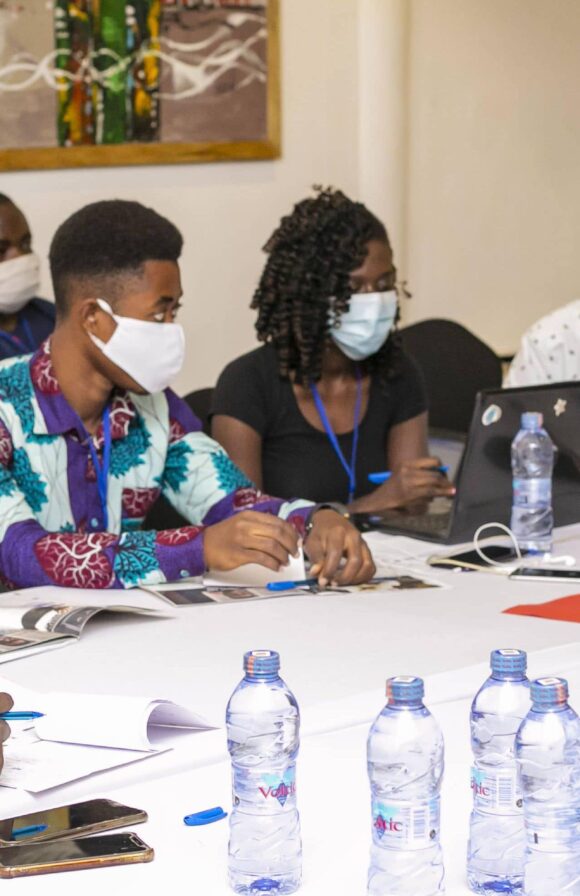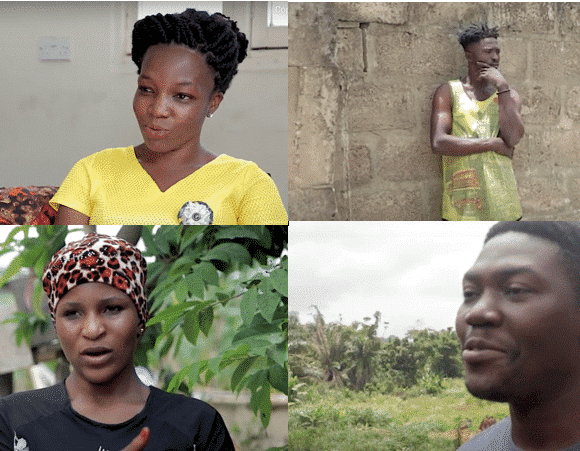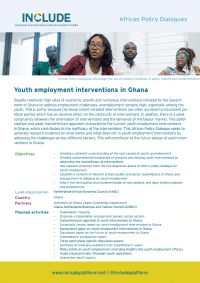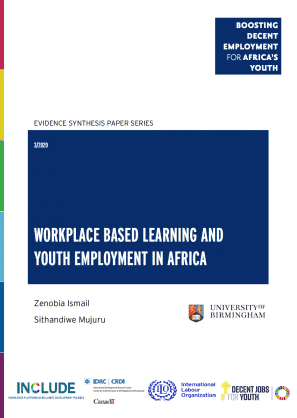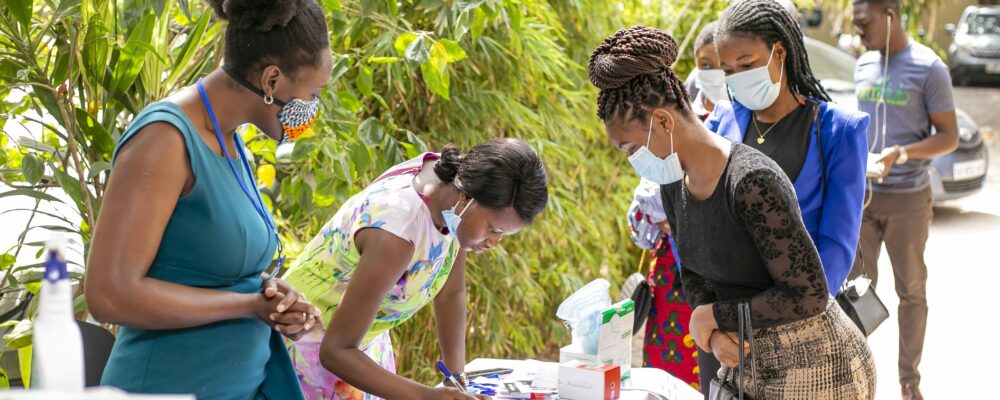
On 9 September 2020, the Netherlands-African Business Council (NABC), University of Ghana Legon, Economics Department and Ghana Netherlands Business and Culture Council (GNBCC) held a stakeholder engagement meeting as part of the APD on youth employment interventions in Ghana. Numerous youth represenatives attended the event and participated in the stakeholder engagement session. Here, we share the reflections and key take-aways of five of these engaged young people.
Youth blog by Nicholas Addae Mensah
“The African Policy Dialogue was a perfect opportunity to learn and experience first-hand the formulation of policy and engagement of stakeholders in addressing youth unemployment in Ghana. The meeting brought together government officials, civil society organizations, political parties, private sector, academia, youth organizations, NGOs and other groups to share their experiences and discuss the way forward for sustainable youth employment in Ghana. It was a learning experience and I made new connections.
It is troubling to know that it is more difficult for educated youth to secure employment in Ghana than uneducated youth. I believe the private sector must be willing to dedicate resources for skills development of youth in their communities, as well as collaborate with training institutions to re-align their curriculum to meet the expectations and needs of labour markets while addressing problems in society. Also, youth should be involved in the governance and policy making process, since they are the future of this country and form about 35% of the total population. We must remember that our failure to address youth unemployment threatens the peace and security of our beloved country, Ghana.” Continue reading
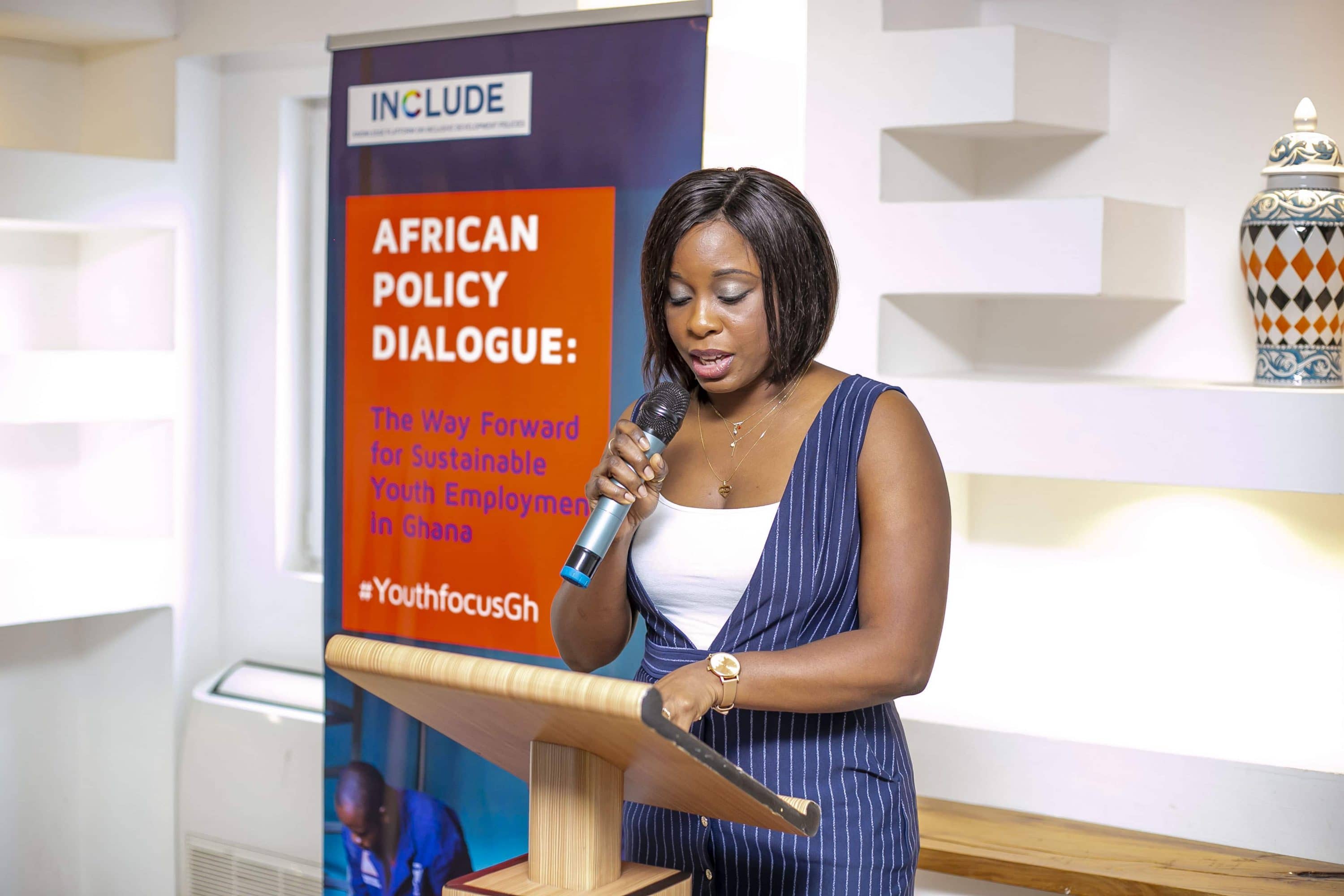
Daniel Attah
Youth blog by Isaac Selasi Ahadz
“I jumped at the opportunity to participate in this year’s African Policy Dialogue, since it promised to shed some light on the actual state of youth unemployment interventions in the country and generate a pragmatic road-map for alleviating this phenomenon. Included in the itinerary were presentations from representatives of the Ministry of Employment and Labour Relations and The Netherlands Embassy, as well as portraits of everyday youth interviewed during the data collection process. Most remarkable for me, however, was the truly comprehensive presentation by the Keynote speaker Prof. William Baah-Boateng. My key takeaway was the clearly touted importance of the role of the youth in developing more employable skills such as research, technical and digital skills, soft skills, job search skills, and volunteer experience.
With the formal employment sector already choked and unable to accommodate the large number of graduates each year, educated youth are left at home since they refuse to delve into informal employment, unlike their uneducated counterparts. Moreover, the excessively high cost involved in training a single STEM student is about seven times more than that of a Humanities student, making it more economical for most schools to keep accepting more Humanities applicants than STEM applicants. That leaves me wondering if targeted government aid, especially in the TVET sector, amidst the vigorous re-orientation of education campaigns towards the opportunities available in the informal sector, could help pre-align the focus of today’s youth and alleviate the situation.” Continue reading

Daniel Attah
Youth blog by Baaba Grant
“My experience working with Livelihood Empowerment Against Poverty (LEAP) in 2017 opened my eyes to the need for productive, inclusive programs in various parts of Ghana to promote self-employment among the poor and the youth. The objective of the meeting on the way forward for Sustainable Youth Employment in Ghana aligns with my deepest concern for the youth in Ghana. As such, it was a great opportunity for me to be present to learn and share my thoughts on this particular issue. During the meeting I noticed a high percentage of participation of the young group, which was a great call because involvement of the youth in decision making allows them to explore and eventually build themselves for leadership roles.
In my opinion, the surest way to eradicate poverty in Ghana is to provide employment, especially for the youth as the country is dominated by young people. I strongly believe in securing a job through vocational skills because it can never be taken away. I think there is great need to make our educational system more pragmatic in this era where students invest in education for years and are not able to find work related to the theoretical aspect of their studies. It is my desire that the mindset of people concerning vocational and technical skills would change, as the majority of people have insufficient interest in this sector. Underutilizing our potential as youth would continue to create youth unemployment.” Continue reading
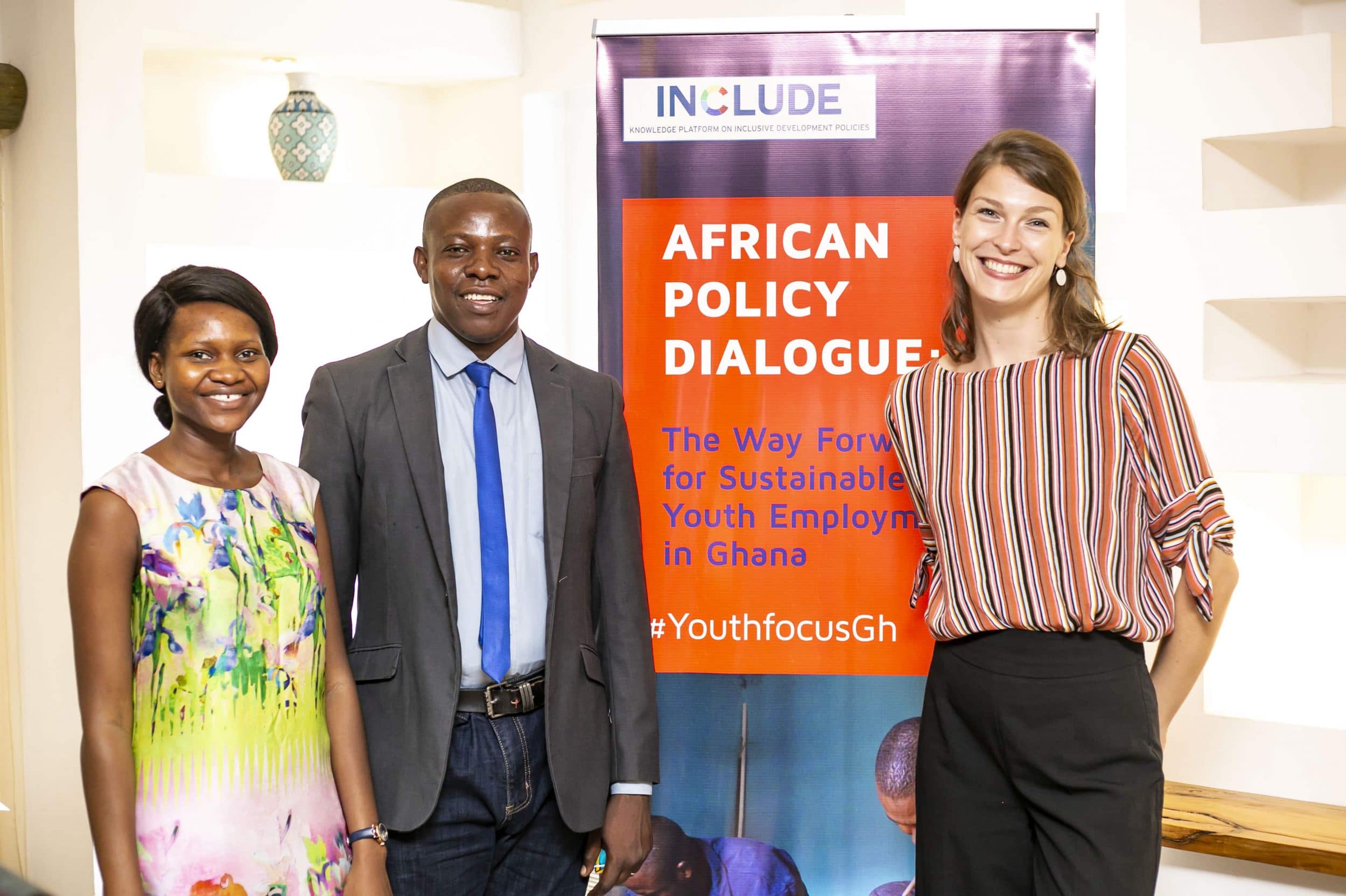
Daniel Attah
Voice memo Frank Bruce
“Innovation can be a tool for growth in this country”. Listen to the voice memo by Frank Bruce, digital creative and social media manager at Odekro, where he shares his the key takeaways from the forum.
Video Josiah Kwesi Eyison
In the video below, Josiah Kwesi Eyison, CEO iSpace hub, reflects on what has been covered during the meeting. Follow Josiah on twitter via @jkeyison.
Please accept marketing-cookies to watch this video.
We would like to thank all young contributors for sharing their takeaways on the youth employment interventions forum.
